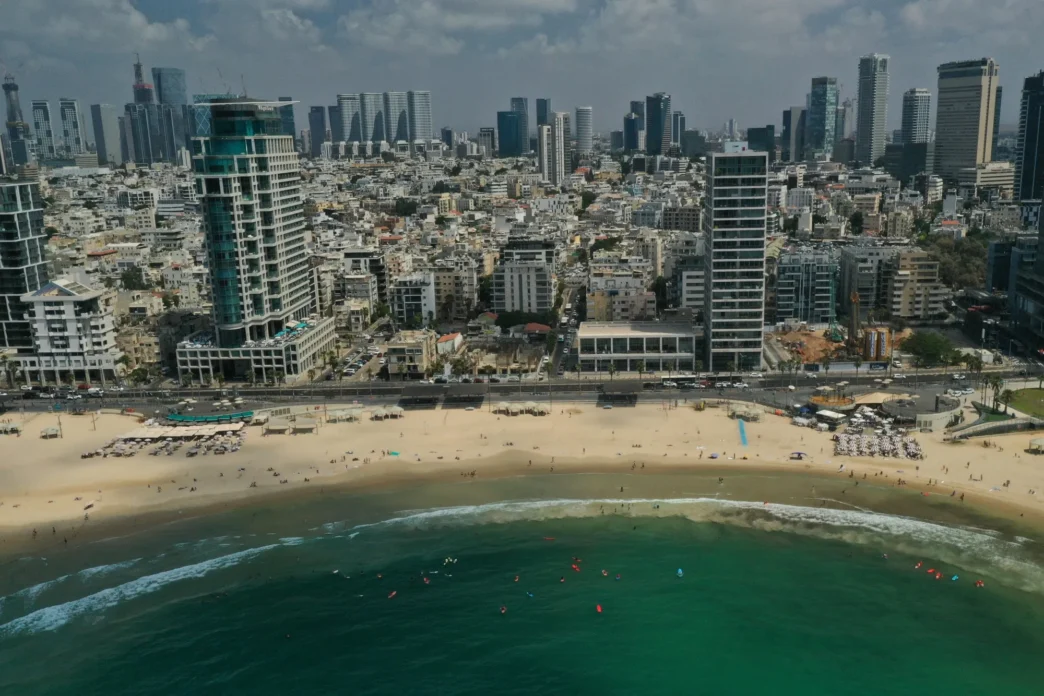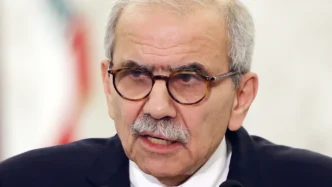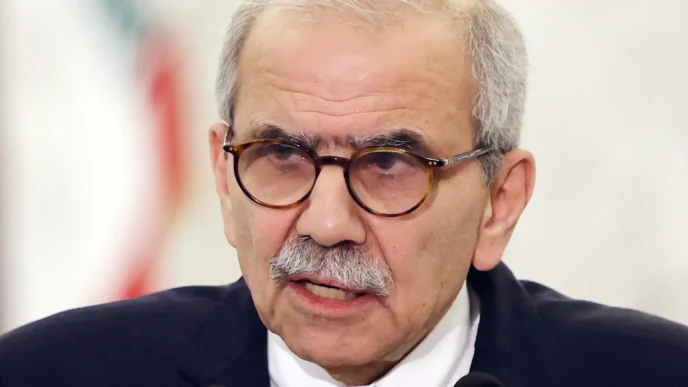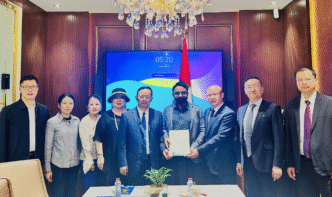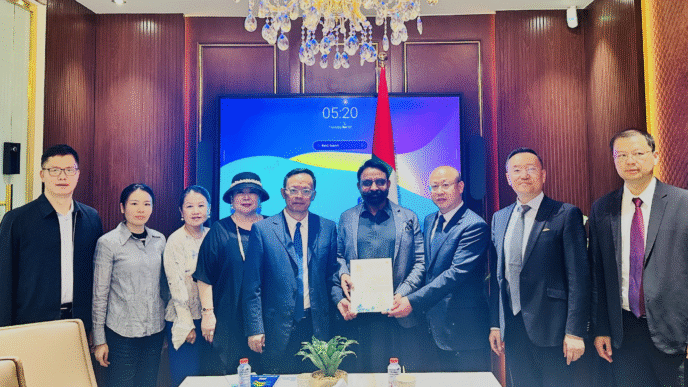After months of geopolitical uncertainty, military escalation, and intense economic pressure, Israel’s financial markets are showing a surprising and powerful shift. What began as a wartime resilience rally—defined by defensive positioning, investor adaptability, and the strength of Israel’s underlying economic fundamentals—is now evolving into what analysts are calling a peace-time boom, as renewed stability, diplomatic breakthroughs, and reinvigorated business confidence fuel a broad-based market surge.
This transition marks one of the most remarkable turnarounds in Israel’s modern financial history. For a country accustomed to navigating conflict while maintaining economic dynamism, the current moment demonstrates not only resilience, but transformation. The landscape that investors face today is fundamentally different from the one they confronted during the months of war.
The new phase appears defined by accelerated growth, renewed foreign capital inflows, and a sharp rebound in sectors that were once under pressure—from technology and energy to tourism and construction. Israel’s wartime market stability has laid the foundation for a peace-time economic expansion that could reshape the nation’s trajectory for years to come.
Wartime Markets: How Israel Maintained Stability Amid Crisis
When conflict erupted, analysts feared severe economic fallout. Yet Israel’s financial markets demonstrated remarkable shock absorption:
- The Bank of Israel intervened strategically to stabilize the shekel.
- Tech exporters maintained revenue streams despite disruptions.
- Domestic spending adapted rapidly, supported by fiscal stimulus.
- Defense-linked industries expanded operations to meet national needs.
- Global investors maintained positions, citing Israel’s long-term economic strength.
Even as volatility rose, Israeli equities avoided a deep collapse. The Tel Aviv Stock Exchange—particularly tech, banking, and energy shares—held firm. Investors took note: Israel’s economy proved capable of functioning and expanding, even under immense stress.
Those dynamics laid the groundwork for a massive upward pivot once geopolitical tensions began to ease.
Peace-Time Momentum: The Engines of Israel’s Market Boom
With conflict subsiding and political conditions stabilizing, the wartime rally is now converting into something much more powerful: a peace-time expansion fueled by renewed confidence and strong fundamentals.
1. Foreign Capital Is Flowing Back at Record Pace
Global investors, many of whom paused new allocations during the war, are now returning aggressively:
- Venture capital funds have resumed deal-making.
- Private equity firms are acquiring Israeli companies at discounted valuations.
- Sovereign wealth funds from Asia, Europe, and the Gulf are exploring long-term partnerships.
Renewed geopolitical stability across the Middle East—including cooperation initiatives between Israel, the Gulf states, and Western partners—is encouraging cross-border business that was previously halted.
2. The Shekel’s Resilience Signals Broader Confidence
The shekel, once under pressure during the conflict, is strengthening as:
- Currency markets price in lower geopolitical risk
- Exports rebound
- Foreign investors repatriate capital
- Tech-sector foreign earnings surge
A strong shekel is a hallmark of foreign confidence in Israel’s stability.
3. Tech Is Booming—Again
Israel’s tech ecosystem, often called the world’s “Startup Nation,” is demonstrating a powerful comeback:
- AI, cybersecurity, fintech, and defense-tech startups are securing new funding rounds.
- Multinationals (Google, Intel, Amazon, Nvidia) are expanding local operations.
- Israeli unicorns are preparing for global IPOs as markets reopen.
Wartime demand boosted defense-tech innovation; peace-time normalization is expanding its commercial applications worldwide.
4. Construction and Real Estate Are Reaccelerating
With stability returning:
- Homebuilding has resumed at full capacity.
- Real estate investment—in housing, commercial centers, and logistics—is growing rapidly.
- Infrastructure megaprojects that paused during conflict are restarting.
Population growth, urbanization, and government housing initiatives are driving demand.
5. Tourism Is Rebounding Faster Than Expected
Travel data shows a rapid return of visitors:
- Pilgrimage sites are regaining foot traffic.
- Hotel bookings are rising.
- Airlines are reinstating routes.
Tourism, which contracted dramatically during wartime, is now one of the fastest-growing sectors.
6. Fiscal and Monetary Policy Are Working in Tandem
The Bank of Israel’s disciplined approach, combined with targeted fiscal measures from the Finance Ministry, helped stabilize markets during the war. Now, those policies are supporting expansion:
- Inflation is cooling.
- Interest cuts are expected.
- Business incentives are fueling investment.
- Government stimulus is flowing into construction, tech, and defense.
The combination of monetary easing and strong investor inflows creates the perfect environment for a boom.
Sectors Leading the Peace-Time Surge
1. Technology
AI, cybersecurity, quantum computing, and digital payments are pulling the market upward.
2. Energy
Natural gas production from Leviathan, Karish, and Tamar continues to strengthen Israel’s energy independence and export capacity.
3. Finance
Banks are reporting rising profitability due to increased loan activity, investment accounts, and capital flows.
4. Tourism & Hospitality
Rebounding demand is propelling airlines, hotels, restaurants, and service providers.
5. Defense & Aerospace
Technologies developed during wartime are now being commercialized internationally.
Geopolitical Stability: The X-Factor Fueling Growth
The diplomatic environment has shifted:
- Regional security cooperation is expanding.
- Trade routes are reopening.
- Foreign governments are supporting Israel’s economic reintegration.
Improved global partnerships, particularly with Europe, the U.S., and Gulf states, are creating new investment opportunities.
Wartime hardship often generates innovation in Israel. Peace unlocks its commercial potential.
Risks Remain—but Momentum Is Strong
Even in peace-time, Israel faces challenges:
- Political divisions
- Security threats
- Global recession risks
- Tech-sector volatility
- Tight labor markets
But these risks are overshadowed, for now, by Israel’s structural strengths.
Conclusion: A New Chapter for Israel’s Economy
Israel’s markets have moved from resilience under fire to expansion under stability. What began as a wartime rally—built on economic adaptability and investor confidence—is now emerging as a sustained peace-time boom driven by:
- capital inflows
- tech innovation
- rising consumer demand
- government support
- geopolitical stabilization
This transformation underscores a defining truth about Israel’s economy:
Its greatest strength is its ability not only to endure volatility, but to convert hardship into progress.
With the conflict fading and growth accelerating, Israel may be entering one of the strongest economic periods of the decade—turning resilience into opportunity and transforming crisis into long-term prosperity.



